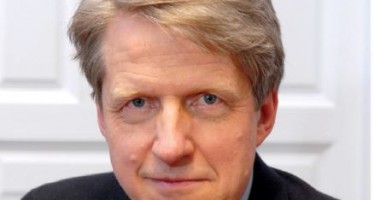Evan Harvey, Nasdaq: Language Locks and Building Blocks
 Language has been an inhibitor to the progress of sustainable business. Rather than putting a trendy new name on an essentially new business practice, a series of conflicting, complementary, and confusing labels has come into practice. Because this era is still nascent, and the social and environmental impacts of business tradition are actively being re-examined, there has been little time for alignment and consensus on the applicability of certain words and labels. Many well-meaning stakeholders tend to think of sustainability, responsibility, ESG, green, impact (and even broader terms like purpose and culture) as essentially the same thing, or at least variations on the same idea.
Language has been an inhibitor to the progress of sustainable business. Rather than putting a trendy new name on an essentially new business practice, a series of conflicting, complementary, and confusing labels has come into practice. Because this era is still nascent, and the social and environmental impacts of business tradition are actively being re-examined, there has been little time for alignment and consensus on the applicability of certain words and labels. Many well-meaning stakeholders tend to think of sustainability, responsibility, ESG, green, impact (and even broader terms like purpose and culture) as essentially the same thing, or at least variations on the same idea.
The willful misuse of language and labels has also been a significant obstruction. Some take advantage of sustainability terminology to pitch wholly unsustainable products or amplify otherwise benign services. And for this practice, we have a perfectly serviceable and well-understood label: greenwashing.
Growing concerns over greenwashing have attracted some regulatory action. The US SEC issued a public Risk Alert (The Division of Examinations’ Review of ESG Investing, April 2021) and also sent letters to individual firms demanding more transparency on their use of ‘ESG’ in fund construction, classification, and marketing.
“ESG itself is not really a word but an acronym, and like most acronyms it has no organic or independent meaning.”
The impulse to go green, even artificially so, is understandable.
“Trillions of dollars have poured into sustainable investment strategies in recent years and regulators have taken little action to ensure funds are marketed accurately, partly because of the lack of agreement on what ‘sustainable’, ‘green’ and ‘greenwashing’ mean.” (Reuters, 04 Nov 2021)
If the terminology that we associate with sustainability is not universally understood or accepted – or trusted – then certain downstream effects become untenable. Recent COP26 goals reiterate a sense of urgency: we must get to global net zero by 2050, generate $100B (US) in climate financing every year, or the consequences are too dire to contemplate. A widening wealth gap and narrowed path to capital access warps social, political, and economic efficiency; it also undermines our faith in institutions and trust in economies. The theme of the 2022 World Economic Forum meeting in Davos is “Working Together, Restoring Trust.” How can we hope to overcome such intractable barriers? Let’s start by defining our terms.
ESG itself is not really a word but an acronym, and like most acronyms it has no organic or independent meaning. It is literally the sum of its parts—built upon every possible scrap of environmental, social, or governance data—and easily conflated with other imprecise terms (corporate sustainability or social responsibility). Yet language is hierarchical, as Noam Chomsky famously opined, and we can better understand related ideas by outing their signifiers into order and context.
Culture is an unorganised, organic collection of norms, ethics, values and aspirations that drive organisational health and productivity. It is empowered by leadership but really nourished by the entire value chain: employees, customers, clients, suppliers. Culture is sometimes confused with brand, which is commercial and inorganic.
Purpose is the modus operandi of culture, the machinery by which cultural ideals are transformed into real business outcomes. It is organised, outcome-oriented, and measurable. Purpose is an evolving concept in the corporate space, but it is often confused with mission, which is also commercial and arguably inorganic. 85% of Fortune 500 companies publish a mission statement, but less than a quarter issue a purpose statement. (Purpose_Brand, 2020)
Sustainability is a choice within purpose: to strategically maximise certain values (which the IIRC once enumerated as capitals: financial, manufactured, intellectual, human, social, and natural) in order to persevere and prosper. It is a directional shift from chasing short-term cents to modelling long-term dollars, yet also dependent on practical measurement.
ESG is that practical measurement. It is a tactic, a data-driven discipline that measures, values, and incentivises specific performance indicators across the environmental, social, and governance space. It can be the proof point for everything above, the metrical validation of our cultural, purposeful, and sustainable hypotheses.
This hierarchy isn’t meant to downgrade sustainability or ESG, nor to elevate culture and purpose to undeserved status. But it should demonstrate how these concepts are different, where they connect, and why performance in one area likely has a reciprocal or subsidiary relationship with another. Before I exhaust your indulgence, let me put all this theory into a more practical form. My company is currently embarked on a project that not only touches upon all these terms but is strategically driven by them.
Nasdaq relaunched its corporate foundation in 2020, coupled with a new business unit called Purpose. Both were intended to demonstrate our commitment to certain values and aspirations inherent in our culture: equity, access, fairness, transparency. To leverage our experience and natural reach, we examined the capital markets and searched for ways to make them better – and fixed our purpose “to champion inclusive growth and prosperity.”
But even though culturally appropriate and purposefully stated, it’s difficult to turn “champion inclusive growth and prosperity” into a program, a series of action steps, or even a defined outcome. We engaged with two prominent research partners – Commonwealth and the Financial Security Program at the Aspen Institute – to put our purpose to the test. Could we better understand inclusive growth and, better yet, overcome key barriers to prosperity?
The resulting report did so, but also helped us to identify “meaningful steps toward a more just and sustainable capital market system.” The concept of sustainability not only drove our operation as a (somewhat modestly sized) public company, but now was applied to our economic and market stewardship. The responsibility we bear for preserving economic opportunity for future generations was put front and center.
Thus, the agenda was set, but we still needed to refine our project into specific targets:
- Resources. One cannot invest what one does not have, and financial insecurity is a foundational hindrance to market participation.
- Actionable Knowledge. Everyone deserves to know what investing means and how it operates, without being overwhelmed by unnecessary information or unattainable expectations.
- Market Access. Individuals who want to invest must also have the access and applicable products to do so.
- Investor Identity. Those with resources, knowledge, and market access must also be able to see themselves—and be seen by family, peers, and society—as investors.
Our success in achieving these targets can be measured in the language and data of ESG: diversity training, investor education, community investment, product availability and credit availability, to name just a few.
The project is just underway and more precise measurements of its impact will come in time. Some of those results may shift our course or reallocate resources to maximise impact. We use the rigor and logic of data to drive our decision-making, make the business more sustainable, measure the positive impact of our purpose and represent our corporate culture.
You may have an interest in also reading…
Driving Change: Empowering Inclusion and Innovation at Boursa Kuwait
At Boursa Kuwait, inclusion, diversity, and innovation drive the mission to transform Kuwait’s capital markets into a platform for opportunity,
EY Argentina: Argentina Amends Promotional Tax System for Knowledge-Based Firms
With technology disrupting business models in various sectors of the global economy, Argentina has finally introduced tax incentives for knowledge-based
Robert J Shiller: Mastering Data
One of the elite Sterling professors at Yale University, he predicted both the dot-com bubble and the collapse of the


















































































